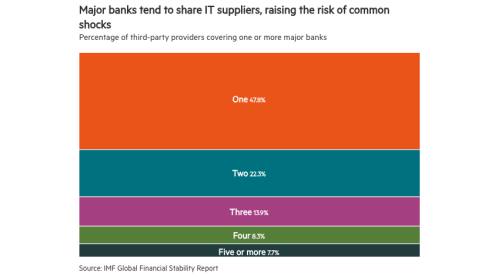London once again tops The Banker’s ranking of international financial centres (IFCs), which measures both the size and potential of IFCs around the world based on a series of financial markets, business and economic indicators.
Financial markets indicators continue to be the dominant data group in our research – and London continues to perform well in this area, particularly when it comes to the amount of international debt securities issued by companies based in the UK capital.
Editor's choice
But in this year’s rankings, we decided to give greater weight to data representing the size and potential of the financial services cluster within each hub, to emphasise the importance of an interconnected and full-service financial services sector to the development of IFCs.
Data on both inward and outward foreign direct investment (FDI) confirmed London’s leadership. The English city attracted a total 298 FDI projects to its shores between 2008 and 2013, and directed an impressive 804 financial FDI deals to other jurisdictions – the largest figures across the world’s financial hubs.
New York top for stock
In second place, New York outperformed its English rival by the total stock market capitalisation of its exchanges, nearly $18,000bn at the end of last year – almost four times the size of London’s. Total pre-tax profits of banks based in New York also surpassed London’s: $73bn for the American IFC against $37bn for the UK capital.
Singapore and Hong Kong retained their third and fourth positions, respectively. Singapore continued to distinguish itself for its efficient business environment: enforcing a contract, for example, takes only 150 days – the quickest of all IFCs. Its Asian rival, Hong Kong, was better at attracting FDI to its financial sector with a total of 274 projects, second only to London.
In fifth place, Dubai is the highest scoring financial hub in the Middle East while, in seventh place, Paris is the best performer in continental Europe – second best across western Europe, after London. Paris hosts the fourth largest banking community in the world, after Beijing, Tokyo and London, with $6645bn of total bank assets.
Warsaw tops the central and eastern Europe ranking, displacing Prague – last year’s top IFC in the region – and sits in 35th place in the overall list.
The largest improvement among the top 10 IFCs was by Tokyo, which goes to eighth place from 16th last year, while Johannesburg was the most improved overall, jumping 18 positions to 17th place.
Helped by impressive macroeconomic economic data and ease-of-doing-business indicators, Panama City tops the Latin American list. The more sizeable São Paulo and Mexico City boast the largest banking sectors in the region, with total assets of $940bn and $110bn, respectively, compared with Panama’s $28bn.
Of the specialised financial centres, the Cayman Islands retains its lead, followed by Jersey, Guernsey and the Bahamas. Mauritius climbed one place to fifth. With the Isle of Man, in sixth position, the only other specialised hub that has improved its standing.
Click on the link below for a PDF version of the complete results
Methodology
The Banker’s IFC rankings are based on data ranging from financial markets indicators to economic potential to business environment factors. The ranking focuses on the level of international business and the value for institutions seeking to expand their international operations.
In recognition of the fact that data for specialised financial centres is seldom consistent with that for mainland financial centres, The Banker has compiled a separate ranking using information relevant to these locations. Publicly available data sources were used as well as The Banker Database and fDi Markets.
Mexico City’s severe drop in the global ranking, to 52nd from 15th place, is explained by a mistake in our data collection last year, rather than a real deterioration in the IFC’s size and appeal, for which we apologise. The Latin American financial centre should not have scored so highly in last year’s global list.







